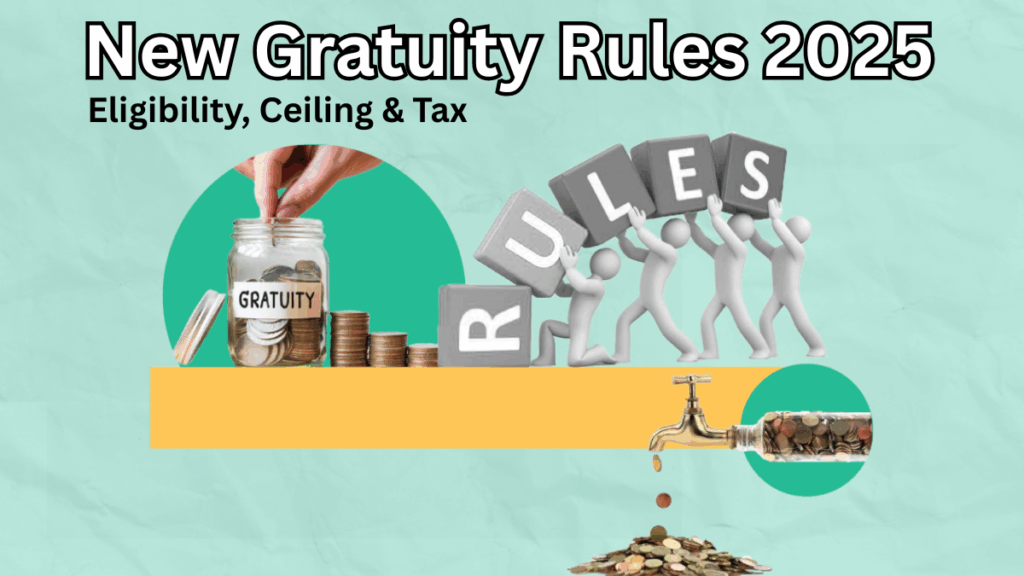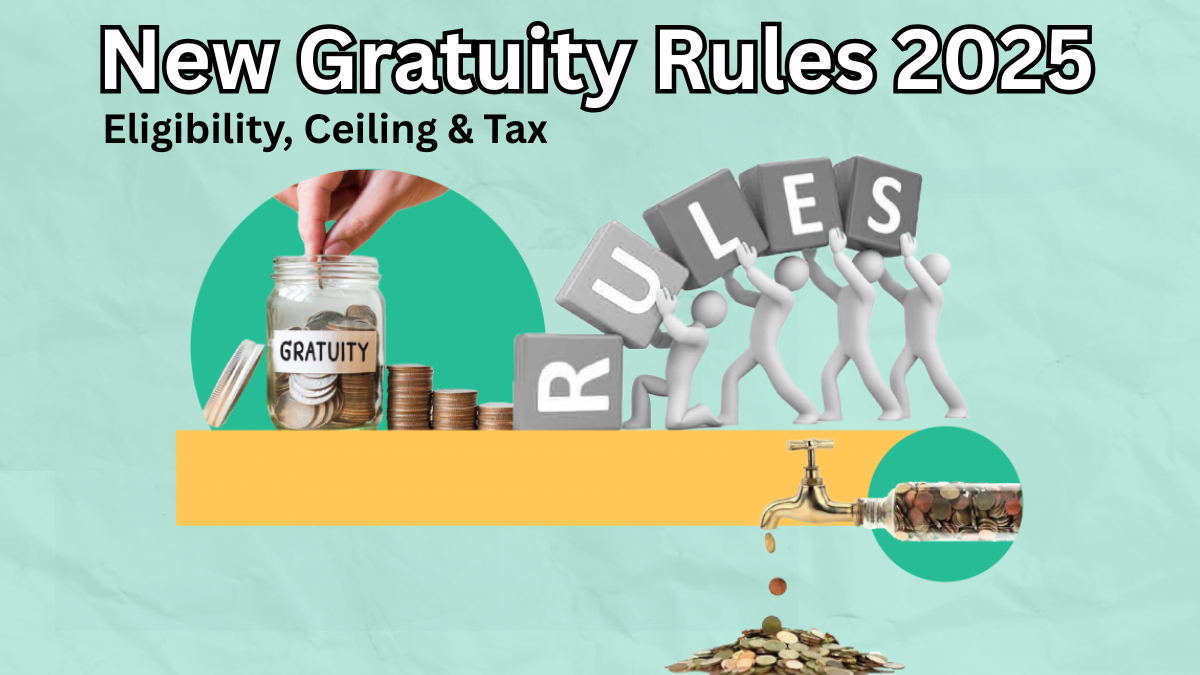The government has introduced new gratuity rules 2025, aimed at making retirement benefits more transparent, accessible, and beneficial for employees in both private and public sectors. These changes directly impact the eligibility, ₹20 lakh limit, and gratuity calculation process — ensuring that employees receive fair compensation for their years of service.
Let’s break down the new updates and understand how they affect you.

What Is Gratuity?
Gratuity is a lump-sum payment made by an employer to an employee as a token of appreciation for long-term service. It’s a form of retirement benefit covered under the Payment of Gratuity Act, 1972.
Employees become entitled to gratuity after completing a minimum of five years of continuous service with an organization.
New Gratuity Rules 2025: Key Highlights
The new gratuity rules 2025 bring more clarity and inclusivity for employees across different sectors.
| Key Feature | Details |
|---|---|
| Eligibility | Minimum 5 years of continuous service (relaxed for fixed-term employees) |
| Maximum Limit | ₹20 lakh ceiling retained; proposals under review for higher limits in some cases |
| Calculation Formula | (Last drawn salary × 15 × years of service) / 26 |
| Tax Exemption | Up to ₹20 lakh for private sector employees; full exemption for government employees |
| Applicability | Both organized and unorganized sector employees covered |
| New Provision | Gratuity eligibility for contract and fixed-term employees |
Gratuity Eligibility Criteria 2025
Under the new gratuity rules 2025, eligibility norms have been made slightly more flexible, especially for those under fixed-term employment or gig contracts.
Employees are eligible if they:
- Complete at least 5 years of continuous service with the same employer.
- Have served under a fixed-term contract that equals or exceeds 1 year (new inclusion).
- Are terminated due to disability or death, in which case the 5-year rule does not apply.
Eligible Sectors:
- Private companies
- Government offices
- Educational institutions
- NGOs and semi-government bodies
Gratuity Calculation 2025
The gratuity calculation method remains consistent with previous rules but now includes flexibility for partial service years and variable pay components.
Formula:
Gratuity = (Last drawn basic salary + Dearness Allowance) × 15 × Years of service ÷ 26
Example:
If an employee earns ₹40,000 (basic + DA) per month and has completed 10 years of service:
Gratuity = (40,000 × 15 × 10) / 26 = ₹2,30,769
The ₹20 Lakh Limit and Tax Benefits
The ₹20 lakh limit continues as the maximum non-taxable gratuity ceiling under the new gratuity rules 2025.
Tax Rules:
- Government employees: Entire gratuity amount is exempt from tax.
- Private sector employees: Exemption up to ₹20 lakh; any amount above this limit is taxable.
- Seasonal or contractual workers: Exemption limit applies proportionally to service tenure.
New Additions in 2025
The new gratuity rules 2025 also propose:
- Faster settlements — employers must release gratuity within 30 days of separation.
- Coverage for gig and platform workers, especially under new labor codes.
- Online claim process for faster, paperless settlement through employer-linked digital portals.
Benefits of the New Rules
- Promotes fairness for contractual and temporary staff.
- Ensures faster claim processing and digital tracking.
- Expands social security coverage for non-traditional employment.
- Reduces disputes over gratuity calculation and eligibility.
Frequently Asked Questions (FAQs)
1. What is the new gratuity eligibility under the 2025 rules?
Employees who complete 5 years of service or have a fixed-term contract of one year or more are eligible for gratuity benefits under the new rules.
2. Is the ₹20 lakh limit applicable to everyone?
Yes, the ₹20 lakh limit applies to private sector employees for tax exemption purposes. Government employees, however, are exempt from this limit.
3. How is gratuity calculated under the new rules?
It’s calculated using the formula:
(Last drawn salary + DA) × 15 × years of service ÷ 26
4. Can contractual or gig workers receive gratuity?
Yes. Under the new gratuity rules 2025, even contractual and gig workers can now qualify if they complete the required minimum service period.
Final Thoughts
The new gratuity rules 2025 bring a more inclusive and transparent system for rewarding long-term service. With expanded eligibility, a clear ₹20 lakh limit, and simplified gratuity calculation, employees across various work models can now access benefits that were once limited to traditional full-time workers.
This update not only enhances financial security at retirement but also promotes fairness and accountability among employers in India.
Click here to learn more
